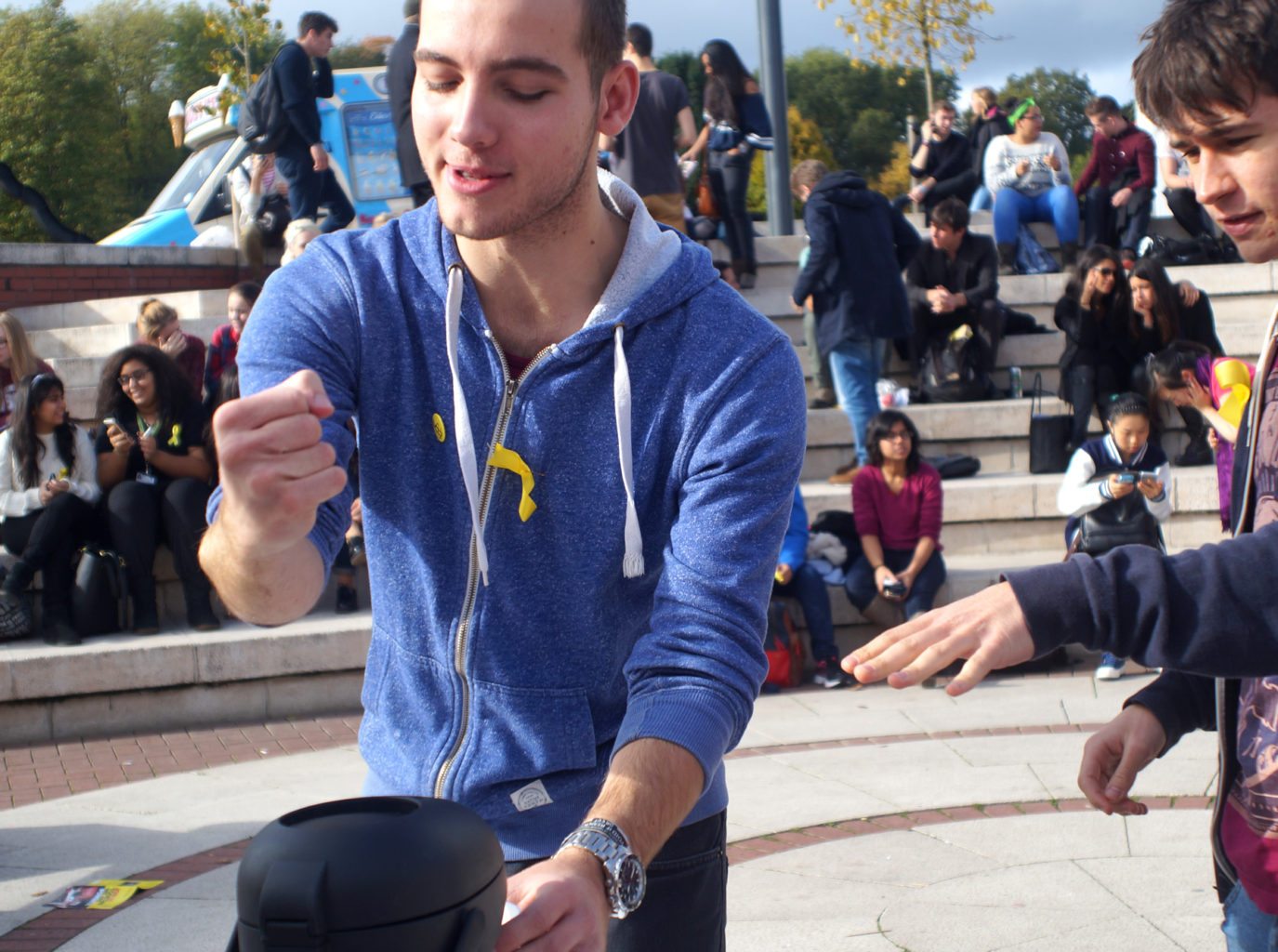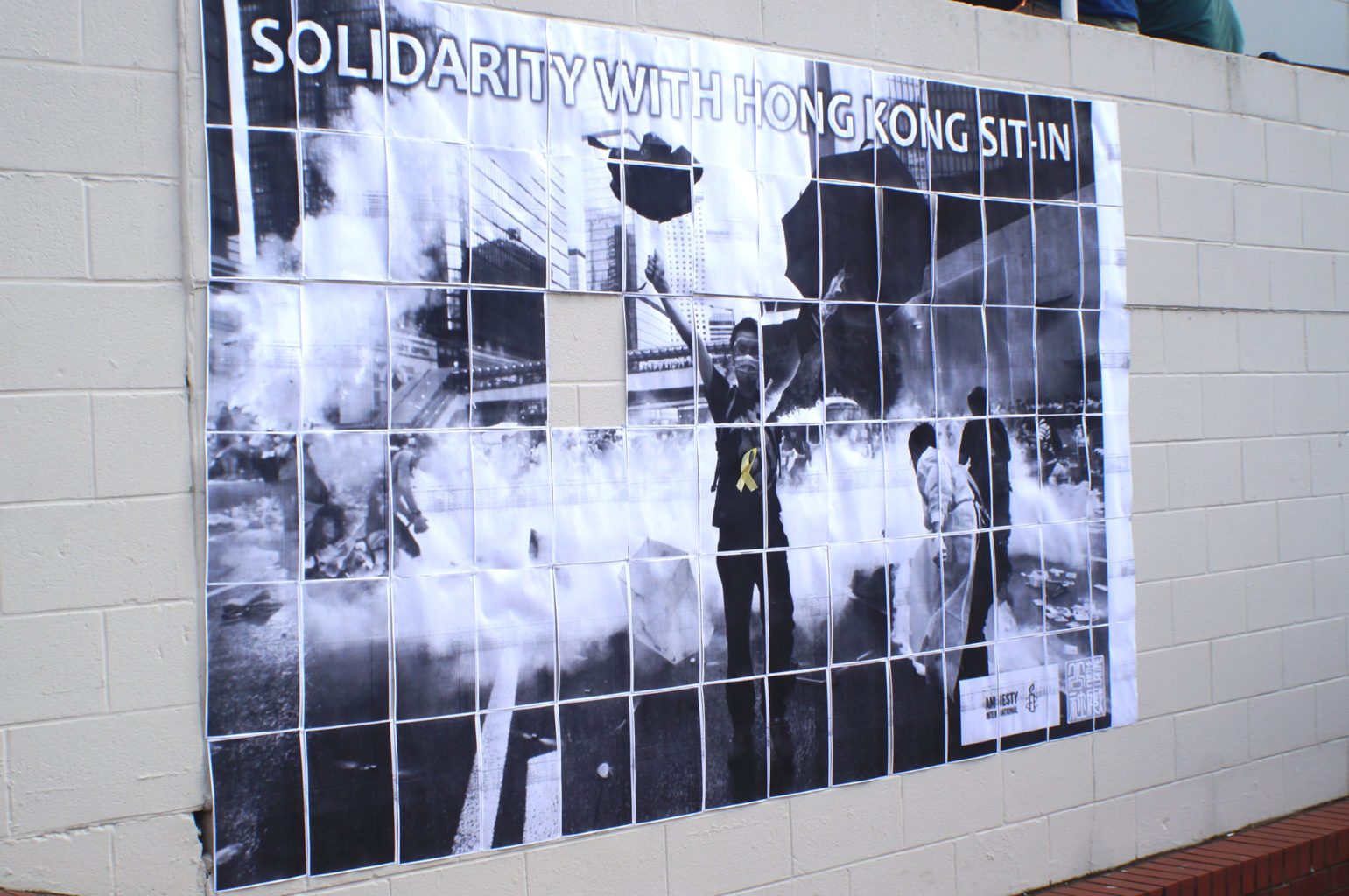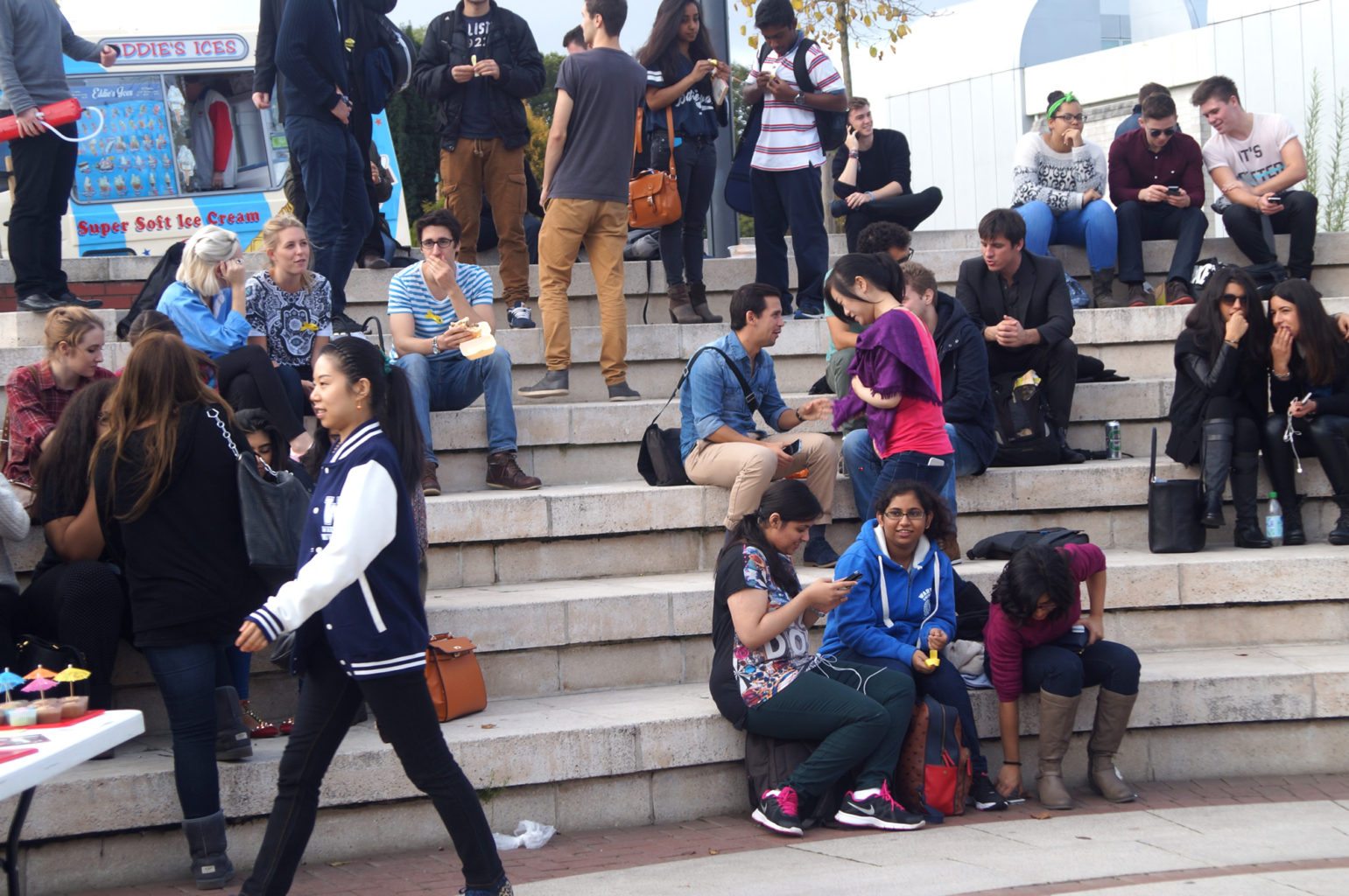Students show support for Hong Kong protests
Approximately 30 student supporters joined a ‘Solidarity with Hong Kong’ sit-in protest at the Piazza last Friday 17 October.
Warwick students showed support towards the pro-democracy protests in Hong Kong where violence broke out and police used tear gas against protestors.
The sit-in was organised by Warwick Amnesty in collaboration with Warwick Hong Kong Public Affairs and Social Service Society (WHKPASS) and featured an evening talk with speakers from WHKPASS.
Alex Brush, organiser of the event and second-year Mathematics student, explained that he was not from Hong Kong nor did he personally know anyone from Hong Kong, but said that his interest in the dispute started in the news and videos he watched.
Mr Brush said that he wanted to “show that people all over the world are interested in what’s happening in Hong Kong”.
He added: “It’s a contentious issue because we stay from agreeing or disagreeing because we understand that the political circumstances are more complicated than that.
The organiser of the event was second-year Maths student Alex Brush; photos: Ann Yip
“But it’s the fact that the protests were so peaceful and the fact that they’ve been confronted by real aggression from the police, who don’t seem to care about them whatsoever.”
Grace Hunt, campaigns officer for Warwick Amnesty and second-year Sociology student, commented: “Most of what I know is what Alex has given us really. It’s such an important issue and I feel like sometimes Hong Kong’s issues get overlooked.
“We’re just trying to raise some awareness. I think people at Warwick, in the UK, and anybody should care about human rights around the world.”
She pointed out that the evening talk featuring WHKPASS speakers would provide an opportunity for people like herself to know more about the issue.
Most of what I know is what Alex has given us really… I feel like sometimes Hong Kong’s issues get overlooked.
Grace Hunt, Warwick Amnesty campaigns officer
Michee Chan, a member of Warwick Hong Kong Society and a third-year Sociology student, commented: “I support the student protest, but I don’t think we can blame the police as they are just doing their own jobs.
“Although the actions of Occupy Central are deemed ‘illegal’, I think the protests are necessary at this stage because previously any peaceful action has been totally ignored by the government.
“I don’t think it’s an anti-China movement. Hong Kong just wants political independence but China is breaking their promise and not letting Hong Kong govern themselves because they want to control Hong Kong.”
When asked why the Warwick community and the UK should be concerned about the dispute in Hong Kong, Ms Chan said: “I think that we should get more attention from other local and international students because it’s quite a serious dispute at an international level.”
Lucy Stanford, social secretary for Warwick Amnesty and second-year PAIS student, said: “The right to public protest is something that is very popular at the moment, and Warwick Amnesty has been paying a lot of attention.
“We want to support the protestors as humans, not necessarily the parties or the political situation, because they have the right to protest – and obviously teargas has been used.”
Shan Tai, a nursing student from Birmingham City University, travelled from Birmingham for the sit-in protest. Ms Tai was born in Hong Kong but has been living in the UK for seven years.
Being brought up by her father who was born in mainland China, she said that, for her, it wasn’t about the relationship between China and Hong Kong anymore.
She said: “All my life I heard people in Hong Kong say bad things about Chinese people and the Chinese government but I never believed them because I believed that we were all Chinese – up until now. I think I have to believe now and I have to support them.
“I don’t want Hong Kong to become one of the cities in China. It’s so restricted, you don’t have the freedom to speak or to get information.”
The pro-democracy protests in Hong Kong are demanding that the city has a say in nominating candidates for Hong Kong’s highest official, the chief executive position.
The recent protests began when university students boycotted lectures to demonstrate on the streets of Hong Kong. Their protest has since been taken over by the larger Occupy Central movement, a long-standing pro-democracy campaign.
The street protests of the Occupy movement has seen violent clashes with the Hong Kong police, anti-Occupy pro-peace campaign supporters and pro-Beijing camp supporters.





Comments (1)